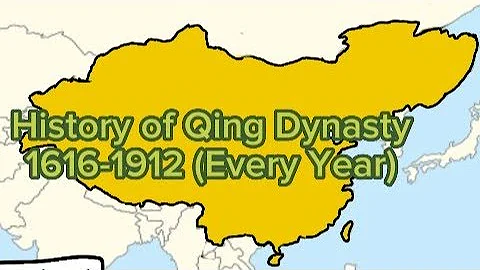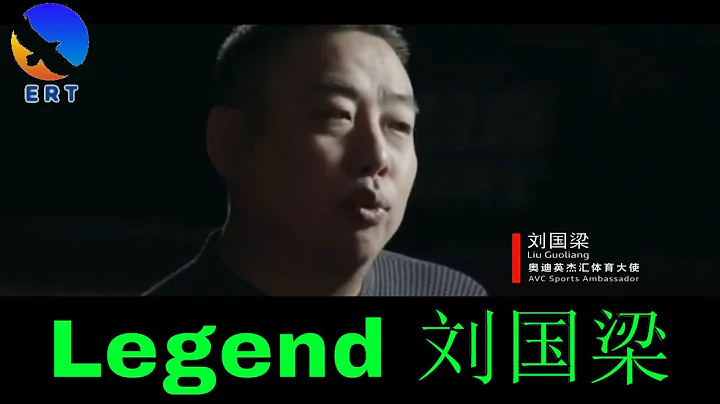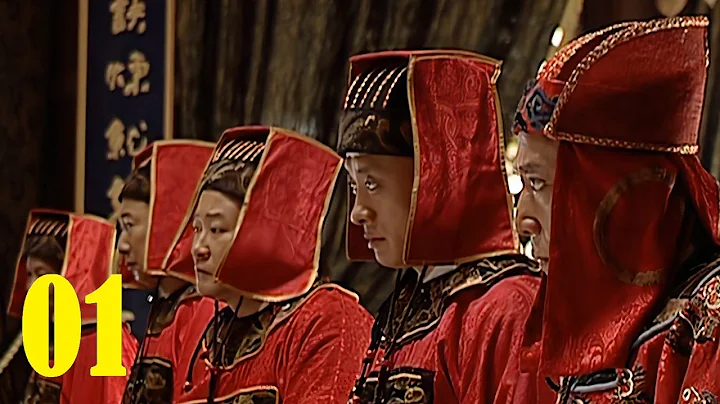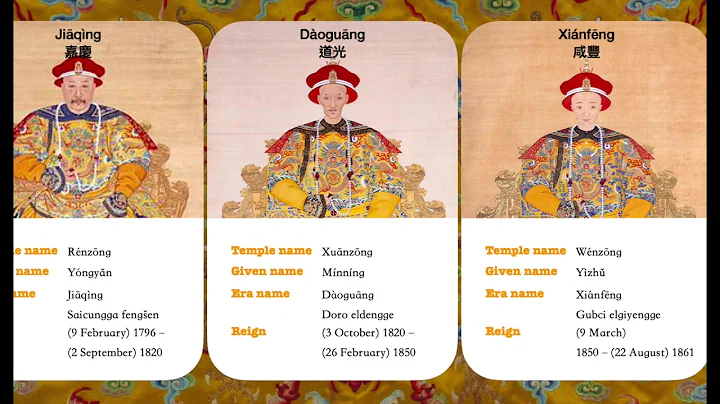Zhu Shi and his Chinese and foreign friends
Original by Cai Yuxin
In the late Ming Dynasty, overseas Catholics took advantage of the convenience of water transportation and set foot in Lanxi. In the early 16th year of Chongzhen in the Ming Dynasty (February and March 1643), the 29-year-old Italian Jesuit Martino Martini (1614--1661) came to China. He passed through Guangdong, Jiangxi, and Jiangnan. On June 27, 1643, he came to Shanghai. Jesuit Pan Guoguang (1607--1671) taught him Chinese and gave him a Chinese name: Wei Kuangguo, with the courtesy name Jitai. In October 1643, Wei Kuangguo came to Hangzhou again and visited many places in Zhejiang, including Lanxi. On July 6, 1644, he returned to Hangzhou. In March 1646 (the second year of Longwu in the Southern Ming Dynasty and the third year of Shunzhi in the Qing Dynasty), Jinhua and Lanxi areas were included in the territory of the Qing Dynasty. In May of the fourth year of Shunzhi in the Qing Dynasty (June 5-July 1, 1647), Wei Kuangguo came to the Jesuit camp in Lanxi and met the local scholar Zhu Shi. With the help of Zhu Shi, he wrote "Qiyou Pian" Completed as a book, published in 1661.
Zhu Shi (1602--?), a native of Lanxi in the late Ming and early Qing dynasties, served as a tribute to Shunzhi in the Qing Dynasty. His deeds can be found in "Jiaqing Lanxi County Chronicle" and "Guangxu Lanxi County Chronicle". Guangxu County Chronicle Volume 5 Characters and Literature: "Zhu Shi, courtesy name Zijian, once traveled from Jinhua to Zhu Dadian. He disdained chapters and sentences. He was fond of reading Han Feizi's books and wrote a lot of crooked articles. He discussed economics and had a superb knowledge. Deposing the superficial and advocating the practical, there are many people who have implemented it in ancient and modern times. Outside of Yiyin, there are Guan Zhong and Zichan in the distance, and Zhuge Liang, Wang Meng, Li Deyu, Gao Gong, and Zhang Juzheng in the near side. They are all unique. Xu Donghai is impressed by his talent.”
Zhu Shi may be one of the first people from Lanxi to believe in Catholicism and is a witness to the history of Lanxi Catholicism. This point was not recorded in the old county annals.
Wei Kuangguo mentioned in his book "Tatar Wars" (data found in "Records of Westerners in the Qing Dynasty" published by Renmin University of China Press in 1985) that he and Zhu Dadian (1581--1646) were personal friends. . Zhu Shi was a student of Zhu Dadian. From this, it is inferred that Wei Kuangguo met Zhu Shi through Zhu Dadian's relationship. Zhu Shi's relationship with Wei Kuangguo became increasingly profound. Due to Wei Kuangguo's limited Chinese proficiency, his book "Qi You Pian" was dictated by him and Zhu Shi transcribed it into a book. In 1647, Zhu Shi was 46 years old and Wei Kuangguo was 33 years old. Zhu Shi wrote a preface to "Qiyou Pian", titled: "Lanxi Zhu Shi Zijian's family knowledge", "In May of Dinghai (1647), Mr. Wei Jitai passed Lingyan, and it was raining while sitting on the mountain tower. He talked about the theory of making friends. , the teacher said, "It doesn't stop there. I taught you hundreds or dozens of words every day. I touched my hands and said, "I'm sorry that I have no words and no words. , finish, the day count is five. Since the teacher said, it is indispensable to know that friends are indispensable, so as to benefit one's own body and spirit. What's more, the gains and losses are obvious. People are happy to follow the way of Qi, and they know that the situation in the world is bound to happen, and it must be the case based on the analysis. It must be the case, and it cannot be the case. It is the nature that the Lord has given. It is love that cannot be avoided. It is the kindness that the Lord has given. It is the kindness that the Lord has given to you. The Lord is a man of great virtue and kindness. God is the so-called perfect person. Those who wish to read this article should not be arrogant and arrogant. What is the benefit to the body and spirit? If you cultivate virtue clearly, you can do things. God." In the summer rain, Zhu Shi and Wei Kuangguo met in a small house in the mountains to exchange religious topics of common interest. For five days, the two collaborated. Wei Kuangguo dictated it and Zhu Shi recorded it, and "Qiyou Pian" came out. Zhu Shi praised Wei Kuangguo in his narrative: "Mr. Wei Kuangguo is magnificent and cultivates his body, and the gods are kind and kind. He looks up to him like a god in heaven. He is the so-called perfect human being." The look of admiration is clearly revealed at the tip of the pen.
In 1648, Wei Kuangguo was in Hangzhou. In 1650, he went to the Holy See to resume his life. In 1655, Wei Kuangguo wrote the "New Atlas of China" (the information can be found in "Introducing China to the World - Research on Wei Kuangguo" by East China Normal University Press in 2012) and was published in Europe. In the section "Tenth Province, Fifth Prefecture Jinhua" in the book, he wrote: "There is also a bridge on a boat in Lanxi, which is more beautiful than the original old bridge that was burned by the Tatars."However, in the notes, the researcher of "Introducing China to the World - Research on Wei Kuangguo" said that this floating bridge "refers to the Puji Bridge located 11 miles north of Lanxi County", based on "The Unification of the Ming Dynasty" This conclusion is wrong. The "Puji Bridge" in the "Da Ming Yitong Chronicle" is recorded as follows: "Ten miles north of Lanxi County, in Song Shaoshengzhong, there were more than a hundred ships. On Liang River. The reputation has changed again, that is, today's daughter is crossing. "Puji Bridge" in "The Unification of the Qing Dynasty" is recorded as follows: "Fifteen miles northwest of Lanxi River, Nuerdu, Song Shaoshengzhong, built hundreds of boats on the Liang River, named Puji Bridge." Later he became more famous. Now the bridge is abandoned, but boats are still used to help. "The record of Puji Floating Bridge in Volume 3 "Qiaodu" of "Guangxu Lanxi County Chronicle" is: "Pingdu Town is Nvnudu. During the reign of Emperor Shaosheng in the Song Dynasty, Liu Si, a native of the city, complimented Zhou Jianliang and said: "Puji" and "Xia floating bridge". Liu Zao, a native of Houyi, and Li Gongyan, the county lieutenant, successively repaired and renamed it Wangyun. It has been abandoned for a long time. In the Ming Dynasty, it became Huajian. It was used to ferry people by boat, and there was a pavilion waiting to be crossed on the east bank. "The poet Jiang Borong in the late Ming Dynasty wrote the poem "Daughter's Ferry":
The green willows at the head of the stream are blowing on the clear sand, and the red skirts on the stream reflect the sunset.
People returning home at sunset are fighting for the ferry, and the lights on the bamboo fence are fishermen's houses.
It can be seen from this that at the end of the Ming Dynasty, The Puji Floating Bridge in Nubu has long since disappeared and has not been rebuilt. The "bridge on a boat" mentioned by Wei Kuangguo actually refers to the Yueji Floating Bridge in the west of Lanxi City. Jiang Borong wrote a poem about "Floating Bridge" to describe the beautiful scenery at that time. :
A long rainbow lies in the blue water, and visitors feel as if they are walking in a mirror.
The most beautiful scenery is the Jihou River, where people are singing and singing under the bright moon.
"Bridge Crossing" in Volume 3 of "Guangxu Lanxi County Chronicles": "It was abandoned in the Ming Dynasty. In the Xinmao year of the Shunzhi Dynasty (1651), Ji Zhenyi, the magistrate of the county, rebuilt it. "The county annals only said that the pontoon bridge was destroyed by the war, but did not explain who burned it. Wei Kuangguo pointed out that it was "burned down by the Tartars", that is, it was done by Qing soldiers. The county annals said that the pontoon bridge was completed in 1651. However, in 1650, When Wei Kuangguo went to the Holy See to resume his duties, he passed by Lanxi and saw the newly built Yueji Floating Bridge. There was a time difference between the two statements. The "New Atlas of China" also mentioned that "there are many believers in Christ here, and they have already been in Lanxi." Construction of the first church began. He also talked about tallow trees and tung oil, which are the characteristic agricultural products of Lanxi. During the Qianlong period of the Qing Dynasty, when Wang Qishu lived in Lanxi, he once said: "There are many tallow trees on Magong Beach. In late autumn, there are thousands of fires, which is a great sight." "There is a poem in his "Song of Lanxi":
There are few houses outside Magong Beach, with clear waves and clear white sand.
Looking up from the Dongfeng Pavilion in the evening of autumn, the red leaves of the river are more beautiful than the flowers.
In 1658, Wei Kuangguo led a missionary Shinan Huairen and others came to China again. On June 11, 1659, he returned to Hangzhou from Macao. In September of the same year, the Franciscan monk Li Andang, who was rushing from Jinan to Lanxi, passed by Hangzhou and met with Wei Kuangguo. , the two debated the Holy See's ruling on the "Liturgical Controversy", the "Oracle of Alexander VII". On June 6, 1661, Wei Kuangguo died in Hangzhou.

Zhu Shi was "suave in nature and good at medicine." Wandering around the rivers and lakes, he made friends with many famous people. He said in his own words, "I have a weak nature, so during the three volts, I must wrap myself up tightly in heavy clothes and thick quilts. Otherwise, my head will be closed, my nose will vomit blood, and I will slip up at night." "After a long illness, he became a good doctor. Zhu Shi traveled around the world with his medical skills. He was full of energy, nearly seventy years old, and had not yet returned to his hometown. "In the autumn of Gengxu (1670), he visited Wu Bocheng's envoy in Wuxi. "In the eleventh year of Kangxi (1672), the 71-year-old Zhu Shi was still boating in Xixing, Yixing. He and Chen Weisong (1625--1682), Qian Qianyi (1582--1664), Fang Yizhi (1611) --1671), Xu Qianxue (1631--1694), Ji Zhenyi (1630--?), Qu Dajun (1630--1696), Chen Gongyin (1631--1700) and other famous people had many contacts, and Qian Qian wrote poems and poems for him. There is a poem in Volume 11 of Yi's "Muzhai Youxue Ji": "I gave it to Zhu Zijian and made an appointment for refining medicine in the Mid-Autumn Festival":
I heard that Han Zhusheng, Li Jieshi Shi Yu, was the doctor of Zai Sang. Afterwards, Zijian went to the north to write a book, raised his arms and scolded the mediocre slaves, turned to the right and returned to Hanlu, where he hugged his knees and met the ancient immortal. , use the green bag book. Collect the herbal essence, cook it and pour it into the curling pot. The medicine can be used in Suhuan District. What is the matter with the government?
I'm an old man, and I'm borrowing money to liven up my life. The Lanjiang River has been full of joy for ten years.
Drink my herb juice to relieve inflammation. The words of Taixi are strong, and the fire clouds are steaming in eight corners.
The sky and the earth are like cages and steamers, and the birds are dancing in the sky and sighing. When I heard about Huayuan Hua, my heart was filled with vigilance.
The spleen and stomach may be half rotten, and the prescription is comb. It is so sad that people in this world have rotten hearts and spleens.
What will happen if there is a snake hanging in the car? Zijian smiled to the sky and looked up at the birds.
will visit me in Hongdouju in August and September. The white moon is in the middle of the Mid-Autumn Festival, and the jade plate bears all the flowers.
On the side of Yushan Mountain where I live, there are more herbs than vegetables. Since the arrival of Yu Zhong, all those who pick medicines are immortals and Confucians.
I am a black-eyed cloud, and I am waiting for my son to fly into the sky. I am a common man who is good at pouring water. How can I meet a wise chariot?
"Guangxu Lanxi County Chronicles" contains Chen Weisong's poems from "Huhailou Collection" to Zhu Zijian:
The world is famous for Zhejiang's outstanding scholars, Feng Weng and Zhu Sou are the two.
The old man also sells medicine and travels around the city.
At the end of this year, the old man is happy, and he has a scroll of dragon's power in his sleeve.
Quan Qi is an old dragon who is thin, noisy and long, and a whale screams.
Old students can only suffer in silence when reading, and wild men are as fast as being crawled and combed.
The same is true for the old man's medicine. The mediocre teacher will know its principle.
Bian Que is standing across the wall and everyone is talking, but he has nothing to carry and thousands of people are pointing at him.
At the head of Lanxi River, there are thousands of mountains, and the cliffs and cliffs are so coquettish.
There are countless fairies and flowers, and the water flows from the orange well in the pond.
Concubine Diao is pounding medicine into a white jade mortar, while the goddess is washing her hair and bun.
The old man was refining medicine there, and the silver room was full of elixirs.
-----
The old man returned and drank the remaining wine, and the green people in the mountain county only looked back.
There is also a "Liangxi Poem to Send Zijian":
The old man in Lanxi is now Hua Tuo, his torso is as shaved as Qingtongke.
The wine is so full that the eyes are exposed, and the dragon is as excited as a dragon on a paper and ink plate.
He is so open-minded as a person, and his discussion of history is poor.
There is a roll of words in the sleeves. There are not many words in the blue and red.
----.
Fang Yizhi, a native of Tongcheng, has a poem in Volume 5 of "Fang Ziliu Yucao": "Hearing a letter from a thief among the guests, he sent a message to Zhu Zijian":
A half-drunk disciple met each other while playing the drum, but he had to worry about his father-in-law.
A wanderer dreamed of his children crying, and the people in Zou were writing books and their homes were empty.
Yesterday I heard that the army was conquering the entire north of the country, and the sun was angry at the east.
What is the use of Taixi's literary words? Few people can ride a horse and learn to bend a bow.
"Guangxu Lanxi County Chronicle" mentions that Zhu Shi "wrote different books, and the only one that survives is "Xi Yan Shuo"." The seven volumes of the chronicle, the "Xi Yan Shuo" are as follows: "Xi Yan Shuo, written by Zhu Shi , Wang Chongbing said: Mr. Zijian likes Han Feizi's books, and he likes the writings of Niao Ya. He writes different kinds of books. I only see that his writings admire Yan Shuo. This is because he was inspired by the prosperity of empty talk in the late Ming Dynasty, but he despised Confucianism. , is not unreasonable, but what he said is remarkable and indelible."
In addition to "Xiyan Shuo", Zhu Shi's works are also known to be "Zhihao Xuelu", both of which were written by Li Yuankuan (Li Yuankuan). 1607--? ) preface. According to a literature search, the University of California, Berkeley, has collected six volumes of Zhu Shi's "Zhi Haoxue Lu" manuscript. This manuscript was originally from the "Jiaye Hall Collection", and the collection label has the following information: "Six volumes of "Zhihao Haoxuelu", written by Lanxi Zhushi, ten volumes of old manuscripts, old collection of Zhiquzhai, collected The title of the front page is: "Zhi Haoxue Lu was compiled by Zhu Shi Zijian of Lanxi, and the male teacher Zhengshu Zhang and his disciple Jiang Taozi issued the same "Jie", which was written by Zhu Xizong in the late Ming Dynasty. The name of the school (reigned from 1621 to 1627) was still used in writing in the early Qing Dynasty. The "Automatic Preface" of "Zhi Hao Xue Lu" was written by Zhu Shi himself, with the final title: "On the 9th of the 11th year of Kangxi's reign (1672), on the 9th, the seventy-one Weng Zhu Shizi came to know each other on the sill of the boat in the west of Yangxian." "On the 9th. "Maybe it's a mistake in writing "September", or the month is missing. "Yangxian" refers to Yixing, Jiangsu Province, that is, Zhu Shi wrote this preface on the ship in Yixing. There is an "introduction" in the book, and the last title is: "Lanxi wishes Shi Zi a firm understanding, when Yimao (1675) Qing Dynasty and the first month of the year are four." The book has six volumes in total, and the contents of each volume are: Volume 1 Letters : Volume 2: Letters: Volume 3: Commentary: Volume 4: Preface: Volume 5: Miscellaneous Works: Volume 6: Medicine. Before the "Table of Contents", there is such a paragraph: "In the past, people called people a good scholar, saying: I am not good at learning, but I know that I am a good scholar, so I stole it and wrote it in name." Zhu Shi said it clearly. The reason why this book is named "Zhi Hao Xue Lu".Wang Chongbing (1653--1739) from Dongyang had not seen Zhu Shi's "Zhihao Xuelu". He said: "I have only seen his work "Xiyan Shuo"."
Because there is this paragraph in "Qiyou Pian": "In May of Dinghai (1647), Mr. Wei Jitai passed Lingyan, and he was sitting in the rain on the mountain tower." Some people believe that "Lingyan" is the "Linglong" in Lingdong Mountain Rock", and it is speculated that Zhu Shi lived there. In fact, Zhu Shi has specified his place of residence in "Zhihao Xuexuelu". There is an article on "Mountain Residence" in the book. He said: "I lived in a mountain village in Ziyan Township, named Tang Village in Bashixi." In the chapter "Friends of Mountain Residence", he said: "Ziyan Township is also an ancient title. It was named before Liu Xiaobiao. The village was close to the mountains and the county was in the north. In the summer of Bingxu (1646), I could see the desolation and desolation when I walked around. In March of this year, Lanxi was included in the territory of the Qing Dynasty. Perhaps due to changes in the current situation, Zhu Shi moved from Lanxi City to Zhitang Village, Bashixi, Ziyan Township in the summer. Zhu Shi's disciple Jiang Tao was from Jinhua. Jiang Tao was mentioned in "Literature" in Volume 5 of "Guangxu Lanxi County Chronicle", "Xu Teng, courtesy name Yuanxi, was born in Yi. He learned from Jinhua Jiang Tao, and Tao wrote "Jinhua Words and Actions" "It's not done yet, it's done by leaps and bounds." It means that Jiang Tao of Jinhua wanted to write the book "Jinhua Words and Actions", but he didn't finish it. Lanxi Xu Teng then wrote this book. There is an article "Jiang Zifa's Chronicle" in "Zhi Hao Xuexue Lu", with the inscription: "Bingyin (1686) was carved in the Zhongyuan Dynasty, and the eighty-five-year-old Zhu Shi burned the yellow and cooked polyester and picked up the inkstone." Zhu Shi said: "Jiang Zifa, His name is Tao, and he is a distinguished scholar. Although he lives in Jinhua Baizhu, he is only five or six miles away from Yushe. "Baizhu is now near Jinhua Bamboo Horse House. Zhu Shi said that Baizhu is only five or six miles away from his residence. As early as the 9th day of Yiji (1665), Zhu Shi wrote a "Biography of Wu Yousheng", saying: "I visited Yousheng in the Hehu Village Hall, and when I returned, I would go with him along the Qingxi River in Banqiao and follow my words." It can be seen that Zhu Shi's activity area at that time was roughly at the junction of Lanxi and Jinhua.
I wish the stone to be hospitable and happy to make friends. There is an article in the book called "Information to a Friend" that is very straightforward: "It's good to be a good friend. If you want to make fresh bamboo shoots and leeks, I will definitely recruit my friends to share the chopsticks." With seasonal vegetables and vegetables. , must call friends to share the happiness.
The fifth miscellaneous volume of "Zhihao Xue Lu" contains "Occasionally Yin", which contains some of Zhu Shi's poems and a note written by Jiang Tao: "The teacher does not compose poems in his life, and his poems are written occasionally, that is, occasionally. It is not a poet's poem. After the appendix, few people know about his temperament. "Zhu Shi is not good at writing poems. There are not many poems left. I have recorded two of them." "Tangcun Bridge" is a bridge that describes the place where he lives:
The forest is quiet after the rain, and the sun is slanting in the evening.
The wild shop is nestled against a solitary tree, and the village bridge slides over the stone puddle.
Birds chirped in the sand and pecked at the water, dogs barked around the bamboo fence.
Those with white heads and hoeing clouds belong to the Dongfeng family.
Another poem is a poem that evaluates the famous Wang Yangming, titled "Reading the Collection of Wang Yangming":
The Tao Weiwei defeats the troubled people, and mistakenly calls Neo-Confucianism a famous minister.
Once in Yangming Academy, don’t wear two scarves of Confucian acid rulers.
In his poem, Zhu Shi highly praised Wang Yangming's achievements in quelling the rebellion of King Ning Zhu Chenhao, but he was very dissatisfied with Wang Yangming's reputation as a "famous Neo-Confucian scholar". His remarks were quite shocking. Wang Chongbing once said that Zhu Shi "scorned Confucianism", which is true. Volume 6 of
is in the "Medical" category. There is a "Medical Introduction" with the inscription: "On the first day of midwinter in the fifth year of Kangxi (1666), the seventy-year old man of Bashixi wished Shi Zijian his knowledge." In that year, he wished Shi sixty. Many years old, "seventy" may be a mistake in the manuscript. There is also a "Medical Letter" with the inscription "In the sixth year of Kangxi (1667), during the Hua Dynasty, Old Man Jian Zhu Shi met in the bamboo in Zhangbian." In ancient times, the "Hua Dynasty" was on the twelfth day of the second lunar month, which was the day of the God of Flowers. Birthday.

The preface to "Zhihao Xuexuelu" is titled "Written by Zuo Yan, a friend of Nanchang Li Yuankuan". The article says: "Yu Ji prefaced Zijian's "Xi Shuo" and then read his "Zhihao Xuelu" article, and I couldn't stop it. "Li Yuankuan, courtesy name Zuoyan, nicknamed Bo'an, was a native of Nanchang, Jiangxi, and a poet and poet in the late Ming and Qing dynasties. In the first year of Chongzhen (1628), he became a Jinshi. He served as the chief of the Ministry of War and the commander of the Ministry of War. He was awarded Zhejiang Tixue Qianshi. The 121st biography of Ming Dynasty records that "Yuan Kuan was deposed based on the dangerous and strange style of writing.""Li Huang's Little Knowledge" Volume 4 "Li Yuankuan, a scholar in Zhejiang Province, used literary and sports to carry out reforms." "After the fall of the Ming Dynasty, he lived in seclusion and studied behind closed doors for the rest of his life. He wrote the "Jinxian Tang Manuscript". Li Yuankuan was dismissed from office in the Ming Dynasty, and his works suffered from the "literary prison" in the Qing Dynasty. "Records of the Qing Dynasty-Records of the Qianlong Dynasty" Vol. One thousand and seventy-five: In Jiayin, the first month of Jihai, the forty-fourth year of Qianlong's reign (1779), "Hao Shuo, the governor of Jiangxi, found out that Jinxiantang Collection" written by Li Yuankuan, a Jinshi in the Ming Dynasty, and "Wujiji Collection" written by his son Li Zugong were all verified. Obstructive language. In addition to handing over the original book and canceling it, the governors and governors strictly prohibited the execution of the document. "The Qing government banned Li Yuankuan's works, and Zhu Shi's works prefaced by Li Yuankuan were naturally also involved, so their circulation is extremely rare. There is no published version of "Zhihao Xuelu" so far, and only the manuscript is known to be preserved overseas.
Zhu Shi has a wide range of interests. He believes in Catholicism and has good relations with Western missionaries such as Wei Kuangguo, Li Yufan, Guo Duomin, Liu Ruohan, Ba Daoming, Xu Feilu, Xi Bailu, etc. At the same time, he is very knowledgeable about traditional Chinese Feng Shui theory. There is a lot of emphasis on Chinese and foreign knowledge. At that time, Zhou Zhao, a Quzhou native, admired Zhu Shi's Feng Shui knowledge very much. He said in his "Shuangqiao Essay": "The world likes to talk about Feng Shui. Every time I see a famous person like Jugong, This is true for villagers, city dwellers, and old people everywhere. But I don't think it's true, I think it's not the case. The so-called shooting alone is silent, just holding it is a laughing ear. I have heard that Mr. Zhu Zijian of Lanjiang has a similar view. Although I have never attended his lectures, I have been close to him for a long time after reading his articles, and I often rely on them to strengthen myself. "Tang Biao, a native of Lanxi, also studied the theory of Feng Shui, and had a deep friendship with Zhu Shi. The two often discussed Feng Shui with each other. Tang Biao (1640--1713), named Yixiu, lived in Lanxi City in the 18th year of Shunzhi in the Qing Dynasty (1661) Sui Gong. He was well-read since he was a child. He studied under Huang Zongxi and Mao Qiling. After he was dismissed, he devoted himself to learning and was known as "Jinhua Famous Scholar". ", "Reading is a Must in Life", "Reading and Composition Methods", "Father and Teacher's Skills in Inducing", etc. Tang Biao once wrote a letter to Zhu Shi, asking Zhu Shi to delete an article in the collection, " It is said that there is a great chapter on Feng Shui in this collection, and it is urgent to delete it, lest the impure text be used as evidence for all generations. "Zhou Zhao did not agree with Tang Biao's rashness, "Yi Yixiu's remarks are especially disrespectful, so I will question them again. He believes that "Zijian's Feng Shui theory is well-founded, but the Five Classics do not talk about Feng Shui. Therefore, Yi Xiu breaks it with the Five Classics. I don't think so, but just breaks it with the Five Classics. It is not surprising that Yi Xiu does not know it." no. "
"History of Catholic Missions in China" written by De Lixian and published by the Taiwan Commercial Press states that during the Shunzhi period of the Qing Dynasty, in addition to the Jesuits, there were also Franciscans and Dominicans who preached in Zhejiang. Many Spanish in Manila The Dominicans entered Zhejiang from Fujian and lived near Lanxi. The Jesuits followed the Qiantang River from Hangzhou and gathered in Lanxi. In the 23rd year of Emperor Kangxi's reign (1684), 83-year-old Zhu Shi and six other Lanxi Catholics wrote to Bishop Luo Wenzao, requesting him to come to Lanxi to preach as soon as possible. The letter was signed Cho Xe, which is the transliteration of Zhu Shi's longevity. , the year of death is unknown and needs to be confirmed by
.




















